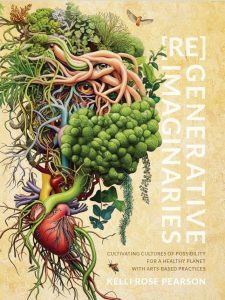Updated 2025-08-15 at 09:42 DM
Online material, reading, assignment and mandatory seminar
Your time planning for part 1
The course runs full time 100% 40 hours per week during 3 weeks and 2 days during the summer semester. You are responsible for your own time planning, study time, and that time will be different for different people with different study techniques, experience and pre-knowledge of issues in the course. A rough estimate of the 56 hours you have allocated for the course during part 1 are:
- Course intro and online lecture, Daniel Mossberg and Anneli Ekblom: 2 hours
- Scheduled online classes (and 1 hybrid): 6 hours
- Online material, videos, audio, texts, activities: 14 hours
- Reading course book: 20 hours
- Seminar assignment: 8 hours
- Mandatory seminar: 2 hours
- Summarizing and reflecting over part 1 Friday after seminar: 4 hours
Course goals examined part 1
The course goals that are examined during part 1 are:
On completion of the course, the student should be able to:
- account for how climate variations have affected different humans and environments;
- critically discuss climate and sustainability challenges in a global and local context
Syllabus for Climate Histories: Science and Art in the Public Space.
Course book for the course and part 1
During the course you will read one book (mandatory). Click on book cover for free open access.
 Pearson K. R. (2025). [Re]Generative Imaginaries: Cultivating Cultures of Possibility for a Healthy Planet with Arts-Based Practices. Wageningen: Wageningen University
Pearson K. R. (2025). [Re]Generative Imaginaries: Cultivating Cultures of Possibility for a Healthy Planet with Arts-Based Practices. Wageningen: Wageningen University
Direct link: https://edepot.wur.nl/681063
Written preparation assignment part 1
This is your assignment in preparation for this Friday’s mandatory seminar.
1. Climate Histories
If you could go back in time to one specific place, time and possible historical event (to observe, not to intervene) – When and where would you? Why that time and place? What do you see? How are people living, relating to each other and the surrounding environment? What season is it? How is the climate at that time interacting with human society, creating conditions and challenges? How does an understanding of environmental history help you?
400-500 words.
2. Pearson [Re]Generative Imaginaries: Cultivating Cultures of Possibility for a Healthy Planet with Arts-Based Practices
Pick one idea, concept, example, longer quote from Pearson’s book that you found relevant in relationship to the course and the topics you are interested in. Discuss how the idea, concept, example, quote connects to and can be useful in working with different climate and sustainability challenges, especially relating to the themes in this course.
400-500 words.
3. Your interactive activity with focus on climate, history, science, art in a public space
Starting from your previous experiences, studies, work, interests, skills and inspiration from this first part of the course, decide on one or max two topics, issues, thematic areas that you want to include in your interactive activity. Also list how ideas on what kind format you want to explore – is a short video, mini-documentary, podcast, collection of poems, joint painting session, guided walk, treasure hunt, council of all beings, world café – be creative and challenge yourself! And finally try to think of what kind of place would be best for this activity?
As many words, images as needed.
Submit the assignment with your name no later than August 15 at 09.00 here: https://uppsala.instructure.com/courses/107297/assignments/341116
Mandatory seminar part 1 – Friday August 15 at 10.15-12.00
Join Zoom-meeting here: https://uu-se.zoom.us/j/68579048755
The purpose of today’s mandatory session and written assignment is the following:
- To examine all of you on the course goals “On completion of the course, the student should be able to: account for how climate variations have affected different humans and environments; critically discuss climate and sustainability challenges in a global and local context”. This is done through active participation in the seminar where you in the presentation, discussion show that you have reached a pass level of the above course goals.
- To summarize part 1, give you inspiration, ideas and tools for next week’s interactive activity.
The seminar will be structured from the three questions, parts of the assignment:
- Climate Histories
- Pearson [Re]Generative Imaginaries: Cultivating Cultures of Possibility for a Healthy Planet with Arts-Based Practices
- Your interactive activity with focus on climate, history, science, art in a public space
Tech and communication
To be able to study the course you will need a computer, tablet or smartphone with access to the internet. Seminars, workshop and online meetings will be easier if you have external headphones with a microphone. It’s important that you download Zoom here: https://www.uu.se/en/students/it-for-students/software/zoom and install it on the device you’re using for the course. You can test video and audio in the settings.
Course coordinator Daniel Mossberg is available every week day Monday to Friday via text/sms 073-065 02 28, call if there’s anything urgent. Emails will be responded to within one week at daniel.mossberg[a]cemus.uu.se.
Online material – video, audio, texts and activities
See further reading in The best books on Environmental History recommended by John R McNeill.
Download the free app here: https://www.deeptimewalk.org/kit/app/.
The Deep Time Walk is a 4.6 km walking audio history of life. This unfolding takes you from 4.6bn years ago to the present day, with each metre representing one million years. During the narrated walk you learn how our planet evolved over this vast stretch of time, including the accretion of the Earth from a disc of rocky debris, the formation of the oceans and atmosphere, the appearance of bacteria – the first life, then the first nucleated cells, and, eventually, multicellular organisms. As you walk you begin to recognise the long geological processes and self-regulating patterns that have produced the conditions for the evolution of life.
Read more: https://www.deeptimewalk.org/.
